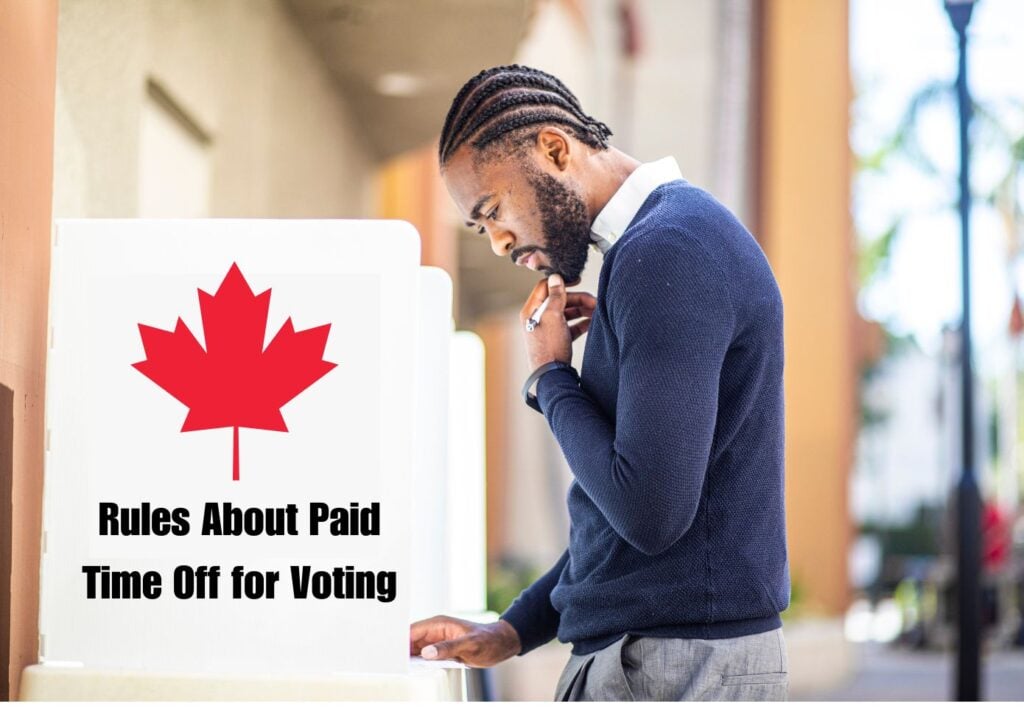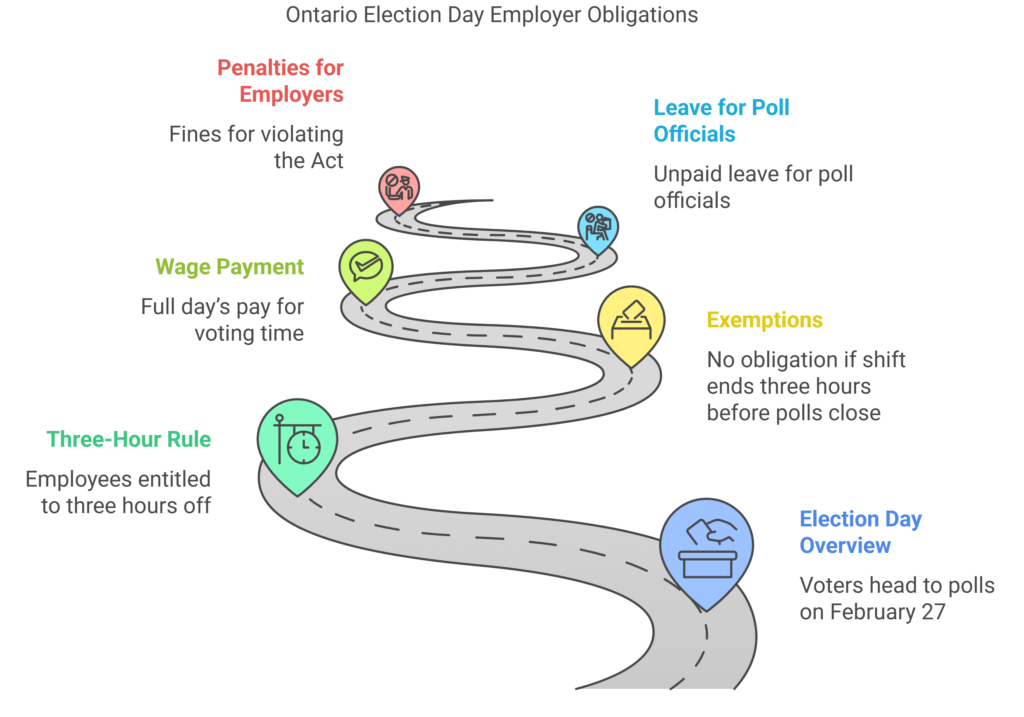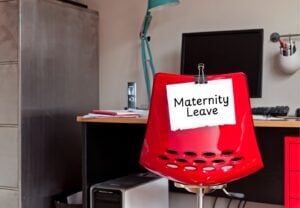
Ontario Employers: Here are the Rules About Paid Time Off for Voting in the Upcoming Provincial Election
On February 27, voters in Ontario will head to the polls to cast their ballot for the provincial election. Below we summarize what employers need to know about their obligations to employees per the Ontario Election Act, 1990 (“Act”).

Understanding the “Three Consecutive Hours” Rule
Per the Act, an employee who is qualified to vote in an election is entitled to three consecutive hours of paid time off. The duration has been deemed sufficient to allow an employee enough time to travel between work and their assigned polling station (which is based on their home address, and not their work address).
For most of Ontario, voting hours on February 27 will be between 9:00 am. and 9:00 pm EST. For electoral districts that lie entirely within the Central Time Zone, voting hours will be between 8:00 am and 8:00 pm.
If an employee’s scheduled work does not allow for three consecutive hours of leave, then that employee may request additional time for voting as may be necessary. The employer must grant this request. The Act specifies that these three hours “shall be provided at the time of day that best suits the convenience of the employer.” However, employers are generally advised to be as flexible as possible.
Exemptions
Employers are not obligated to adhere to the “three consecutive hour rule” if an employee’s shift ends at least three hours before their respective polling station closes.
For example, Tim lives in Brampton, and on election day he is scheduled to work from 9:00 am to 5:00 pm. Tim’s polling station closes at 9:00 pm. Since that leaves Tim four hours after work to vote, his employer does not have to give him three hours of paid leave earlier in the day.
Alternatively, Tim’s co-worker Connie will be working from 11:00 am to 7:00 pm on election day. She does not have at least three consecutive hours after work to vote at her local polling station (her work ends at 7:00 pm, and the polls close at 8:00 pm). Therefore, she is entitled to three consecutive hours of paid time off during her workday. It does not matter how close Cara may work to her local polling station, or how long her employer thinks it “should” take her to vote.
Wage Payment Rules
When paying an employee for time spent voting, employers can not make deductions. The employee must receive a full day of pay. This obligation holds regardless of the model that is used to pay the employee. In other words, the employer must pay the amount that the employee would have earned if they worked the full day.
Leave for Returning Officers or Other Poll Officials
If an employee is a Returning Officer or a Poll Official, then they are entitled to unpaid leave to fulfill this obligation, provided that they submit their leave request at least seven days in advance.
Employers cannot deduct this time off from an employee’s vacation entitlement, or impose any form of penalty on the employee.
Penalties
Employers in Ontario who are deemed to violate the Act can be penalized with a fine of up to $5,000 per violation. The fine increases to a maximum of either $25,000, two years’ jail time, or both if a judge convicts the employer and finds that they intentionally committed the offence.


 Our HR solutions experts can recommend the right mix of HR outsourced services to make your entry into Canada easier.
Our HR solutions experts can recommend the right mix of HR outsourced services to make your entry into Canada easier.  Pivotal Employment Management Services co-hires your workforce, simplifying entry of your business in Canada.
Pivotal Employment Management Services co-hires your workforce, simplifying entry of your business in Canada. 
















"Settle dust-ups out of court"